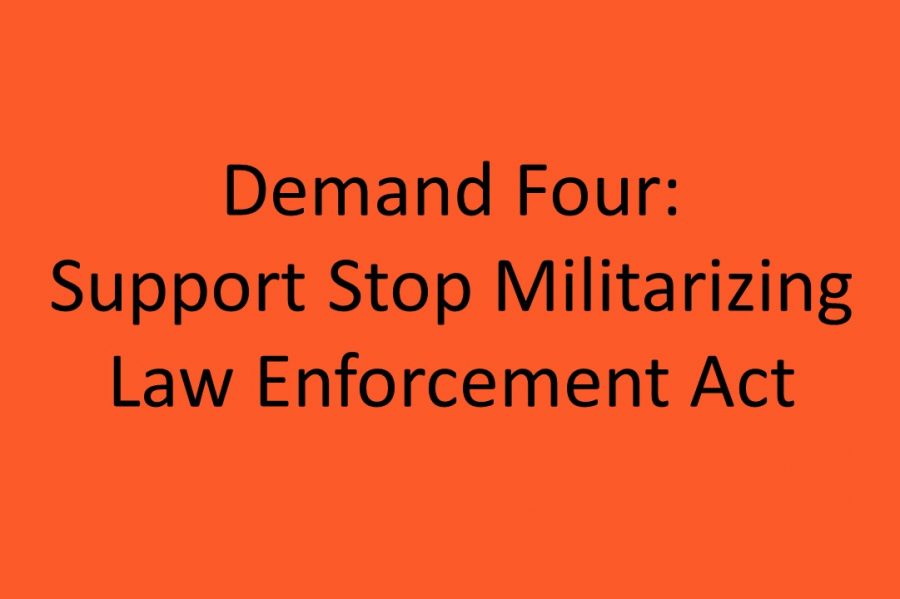IMAGE / Emilie Lewis
Demand Four
The fourth demand and policy Youth EMPOWER supports is the Stop Militarizing Law Enforcement Act, introduced by Rand Paul in 2015.
The act only prohibits supply and use of offensive equipment, but does not prohibit defensive equipment, such as body armor.
Use of military-style training and equipment will also be analyzed.
Any agency that is already in custody of military-style equipment will be required to return it.
According to congress.gov, the following items are prohibited:
- controlled firearms, ammunition, grenades, and explosives
- controlled vehicles, certain trucks, and other highly mobile or mine-resistant ambush-protected vehicles
- armored or weaponized drones
- controlled aircraft that are combat configured or combat coded, or that have no established commercial flight application
- silencers
- long range acoustic devices
- items in the Federal Supply Class of banned items
This act is merely a bill that has been introduced, but not yet passed to the Senate.
The group supports this act due to the amount of people being killed by police.
For example, in the United States, during 2017, there were only 14 days during the entire year that police did not kill someone.
According to statistics from EMPOWER, one in four people killed are black, even though blacks only make up 13 percent of the U.S. population.
Already in 2018, more than 350 people have been killed by the police.
Also, 99 percent of police personnel that have killed someone have not been convicted, and few have been charged at all.
EMPOWER’s goal is to drastically bring these numbers down by making sure police do not have the weaponry and equipment of invading armies.
Those that agree with equipping the police force with military weapons argue that it increases the safety of officers and allows them to protect more efficiently.
Statistics from 2017, though, show that police forces that have been equipped with these weapons are more likely to have violent encounters with the public.
EMPOWER believes that by putting the Stop Militarizing Law Enforcement Act into place, neighborhoods can become a safe place rather than a war zone.
